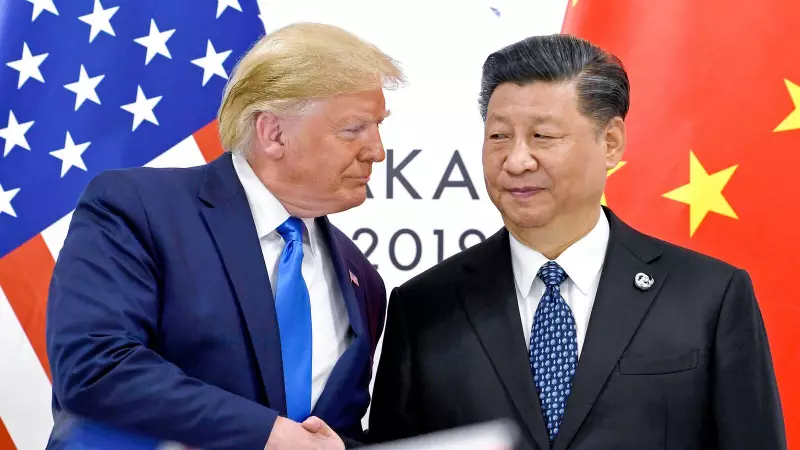
The ongoing trade dispute between the United States and China is poised to enter a new, potentially more dangerous phase. According to recent reports, the Trump administration is actively considering imposing restrictions on exports of critical American software to China, a move that could significantly escalate technological tensions between the world's two largest economies.
What's at Stake in the Software Standoff?
The proposed restrictions would target software deemed essential for various industries, including manufacturing, telecommunications, and emerging technologies. This isn't just about consumer apps; we're talking about fundamental software that powers everything from industrial equipment to advanced computing systems.
Industry analysts suggest this could represent the most significant escalation in the technology cold war between the two nations. Unlike previous restrictions that focused primarily on hardware components, targeting software could have far-reaching consequences for global supply chains and technological development.
The Potential Impact on Global Tech Ecosystem
American software companies have long maintained a dominant position in global markets, with Chinese businesses and consumers representing a substantial portion of their customer base. Any restrictions would:
- Disrupt operations for Chinese companies reliant on US software solutions
- Force accelerated development of domestic Chinese alternatives
- Potentially fragment global technology standards
- Impact American software companies' revenue and market position
Broader Context of Escalating Tensions
This development comes amid already strained relations between Washington and Beijing. The trade war that began under the Trump administration has seen multiple rounds of tariffs and counter-tariffs, with technology emerging as the central battlefield.
Previous restrictions have already targeted Chinese tech giants like Huawei and ZTE, limiting their access to American technology. The new software-focused approach represents an expansion of this strategy into new territory.
What Experts Are Saying
Technology analysts note that restricting software exports could have unintended consequences. While it might slow Chinese technological advancement in the short term, it could also accelerate China's push for technological self-sufficiency.
"This is a double-edged sword," one industry expert commented. "While it may protect US technological advantages temporarily, it virtually guarantees that China will redouble its efforts to develop competing software platforms, potentially creating new global competitors for American companies."
Looking Ahead: Potential Scenarios
As the situation develops, several outcomes appear possible. The administration might implement broad restrictions, targeted limitations, or use the threat of restrictions as leverage in broader trade negotiations.
The coming weeks will be crucial in determining whether this represents a negotiating tactic or a fundamental shift in US technology export policy toward China. Either way, the global technology landscape appears headed for significant changes as geopolitical considerations increasingly influence technological development and trade.





